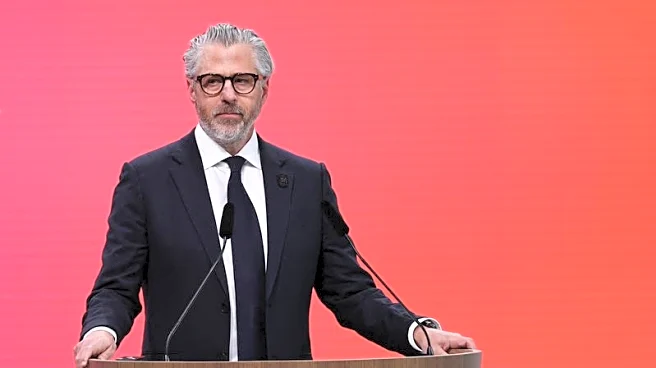Rapid Read • 8 min read
Financial experts are emphasizing the importance of addressing emotional aspects to improve financial wellness. Dr. Megan McCoy, a financial therapist, highlights the link between money stress and emotional well-being, noting that financial panic is prevalent due to economic uncertainties. Elizabeth Husserl, a financial adviser, suggests that the best time to make financial decisions is before encountering a crisis, advocating for a realistic and resilient financial plan. The scarcity mindset, which focuses on immediate needs, often leads to reactive financial behavior. Experts recommend addressing emotional clarity to achieve financial clarity, encouraging individuals to explore their 'money story' and understand how past experiences influence current financial decisions.
AD
The emphasis on emotional preparedness in financial planning is crucial as it can lead to better decision-making and financial stability. By understanding the emotional drivers behind financial decisions, individuals can avoid reactive behaviors that may lead to financial distress. This approach can help mitigate the impact of economic fluctuations, job losses, and unexpected expenses. Building an emergency fund is highlighted as a key strategy to alleviate financial stress, providing a buffer against unforeseen financial emergencies. Addressing emotional aspects can empower individuals to make informed financial choices, ultimately enhancing their financial resilience and overall well-being.
Financial experts suggest small, manageable steps to improve financial wellness, such as setting regular 'money dates' to review finances and automate savings. Building community around financial conversations can reduce isolation and stress, encouraging shared experiences and support. Establishing an emergency fund remains a priority, with experts recommending saving three to six months of living expenses. As individuals redefine their relationship with money, they can achieve greater financial stability and emotional peace, fostering a proactive approach to financial planning.
The integration of emotional clarity into financial planning highlights a shift towards holistic financial wellness. This approach recognizes the interconnectedness of emotional and financial health, advocating for a balanced perspective that considers both immediate needs and long-term goals. By addressing emotional factors, individuals can break free from the scarcity mindset and cultivate a more positive relationship with money, leading to sustainable financial habits and improved quality of life.
AD
More Stories You Might Enjoy












